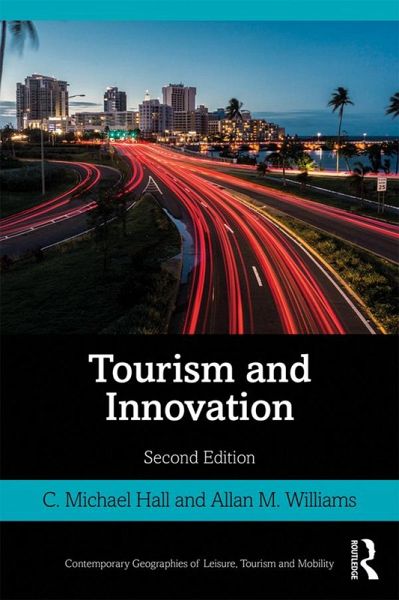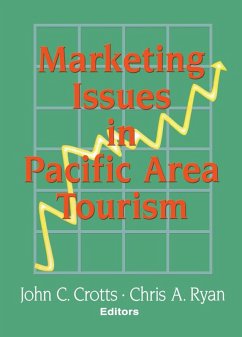
Tourism and Innovation (eBook, PDF)
Versandkostenfrei!
Sofort per Download lieferbar
42,95 €
inkl. MwSt.
Weitere Ausgaben:

PAYBACK Punkte
21 °P sammeln!
This ground-breaking volume on the relationships between tourism and innovation provides an overview of relevant innovation theories and related literatures on entrepreneurship, productivity, regional development and competitiveness, and their significance to contemporary tourism practices.Innovation is a key concept in business and entrepreneurial studies and the broader social sciences. Yet, despite its policy and academic importance, historically little attention has been given to the role of innovation in tourism and the corresponding contribution of tourism-related human mobility to regio...
This ground-breaking volume on the relationships between tourism and innovation provides an overview of relevant innovation theories and related literatures on entrepreneurship, productivity, regional development and competitiveness, and their significance to contemporary tourism practices.
Innovation is a key concept in business and entrepreneurial studies and the broader social sciences. Yet, despite its policy and academic importance, historically little attention has been given to the role of innovation in tourism and the corresponding contribution of tourism-related human mobility to regional, firm, and product innovation. This book emphasises that innovation in tourism is much more than a series of technological innovations, as important as they are, and instead needs to be understood in an economic, social, and political context, with particular stress being placed on the extent to which innovations are shaped by the framework of governance and regulation, as well as by institutional factors and activities of individual actors and entrepreneurs.
It is structured so as to introduce the reader to the overall significance of innovation at various levels and the role that innovation plays in firm and place competition. Supported with case studies throughout, this book is essential reading for all tourism students.
Innovation is a key concept in business and entrepreneurial studies and the broader social sciences. Yet, despite its policy and academic importance, historically little attention has been given to the role of innovation in tourism and the corresponding contribution of tourism-related human mobility to regional, firm, and product innovation. This book emphasises that innovation in tourism is much more than a series of technological innovations, as important as they are, and instead needs to be understood in an economic, social, and political context, with particular stress being placed on the extent to which innovations are shaped by the framework of governance and regulation, as well as by institutional factors and activities of individual actors and entrepreneurs.
It is structured so as to introduce the reader to the overall significance of innovation at various levels and the role that innovation plays in firm and place competition. Supported with case studies throughout, this book is essential reading for all tourism students.
Dieser Download kann aus rechtlichen Gründen nur mit Rechnungsadresse in A, B, BG, CY, CZ, D, DK, EW, E, FIN, F, GR, HR, H, IRL, I, LT, L, LR, M, NL, PL, P, R, S, SLO, SK ausgeliefert werden.













